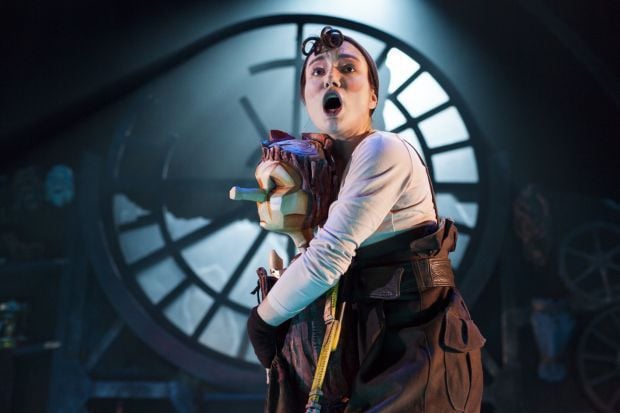Aisha Sultan: Why do young children tell lies?
Preschoolers tell magnificent lies.
Not boring, trying-to-be-polite lies that many adults tell to spare someone’s feelings. And not the evil lies of someone trying to defraud a grandma of her life savings.
No, 2- to 4-year-olds are still figuring out fantasy from reality, confusing wishful thinking from how things really are. They often lie to avoid time-outs, make grown-ups happy or feel good about themselves.
Perhaps the minds of a toddler and preschooler could offer insights into why some adults tell such whoppers. What prompts a grown adult to tell bald-faced lies for no apparent reason and especially when the lie can be exposed so easily? When adults are perplexed by the inexplicable behavior of other adults, it can be helpful to consult the experts.
In the case of fantastical lying, the experts are tots.
A recent walk to the park with my 3- and 4-year-old nephews offered a master class in hyperbole and falsehoods. Being a responsible aunt, I ordered them to hold my hands while crossing the street because of the dangers posed by passing vehicles.
“I’m faster than a car and a truck,” the 4-year-old said in response. (Fact check: He is not.)
Perhaps he wishes he were faster than a speeding truck. Maybe he believes he could be faster if he really tried. Or maybe this bit of self-aggrandizing was offered simply to impress me.
We stopped on a bridge over a creek filled with turtles. I asked if the boys could see the dozens of turtles swimming beneath us.
“They are talking to each other,” I was informed. “To make a plan to get the humans if they fall in the water.” (Fact check: There’s no proof the turtles were plotting against the humans.)
Yet, it was impossible to dissuade the 4-year-old of the conspiracy theory he had concocted in his head. It sounded like it could be true to him, and he didn’t have a reason — other than science — to disbelieve his preconceived notion.
Once we got to the playground, the 4-year-old climbed up a towering play structure. He hung from a rope ladder, peering down at the ground below him.
“I’m going to jump!” he said confidently. He looked down again and reconsidered. “No, I was just kidding.” (Fact check: He got scared.)
Even for a preschooler, the desire to save face is strong. When we started walking back home, he shared details of a recent exploit.
“I got 70 tickets from Chuck E. Cheese. And I got candy.”
This sounded suspiciously like fake news, although he said it very authoritatively. The last time we went to Chuck E. Cheese together, he had less than a dozen prize tickets. This boast could have been a case of exaggerating his wins or simply misremembering seven as 70.
But his next revelation took things too far.
“I don’t have a shaker because my brother never lets me use it,” he confided.
His 3-year-old brother overheard and rolled his eyes.
“I let him use it, and he said no,” the younger one retorted.
The accusations flew.
“That is not true!”
“I’m not talking anymore!”
“He’s lying!”
“I have my ears shut!”
“You lie!”
It was difficult for an outsider to discern what was deflection or projection in this brother versus brother confrontation. A 3-year-old will vigorously defend reality as he perceives it, and a 4-year-old is no less likely to back down.
But since they raised the issue of lies, I wondered how well they grasped the concept of dishonesty at this age. Kids figure out early that they can attempt to lie to get out of trouble or to get away with something they want. Could they figure out a peer’s motives?
I asked the toddler why he thought his brother may have lied about him.
“Trying to make me look like a bad guy,” he said. Bad guys lie, he added.
His older brother maintained his commitment to the truth.
“It’s wrong to lie,” he said. “Because it’s just bad.”
Wisdom out of the mouth of babes.


